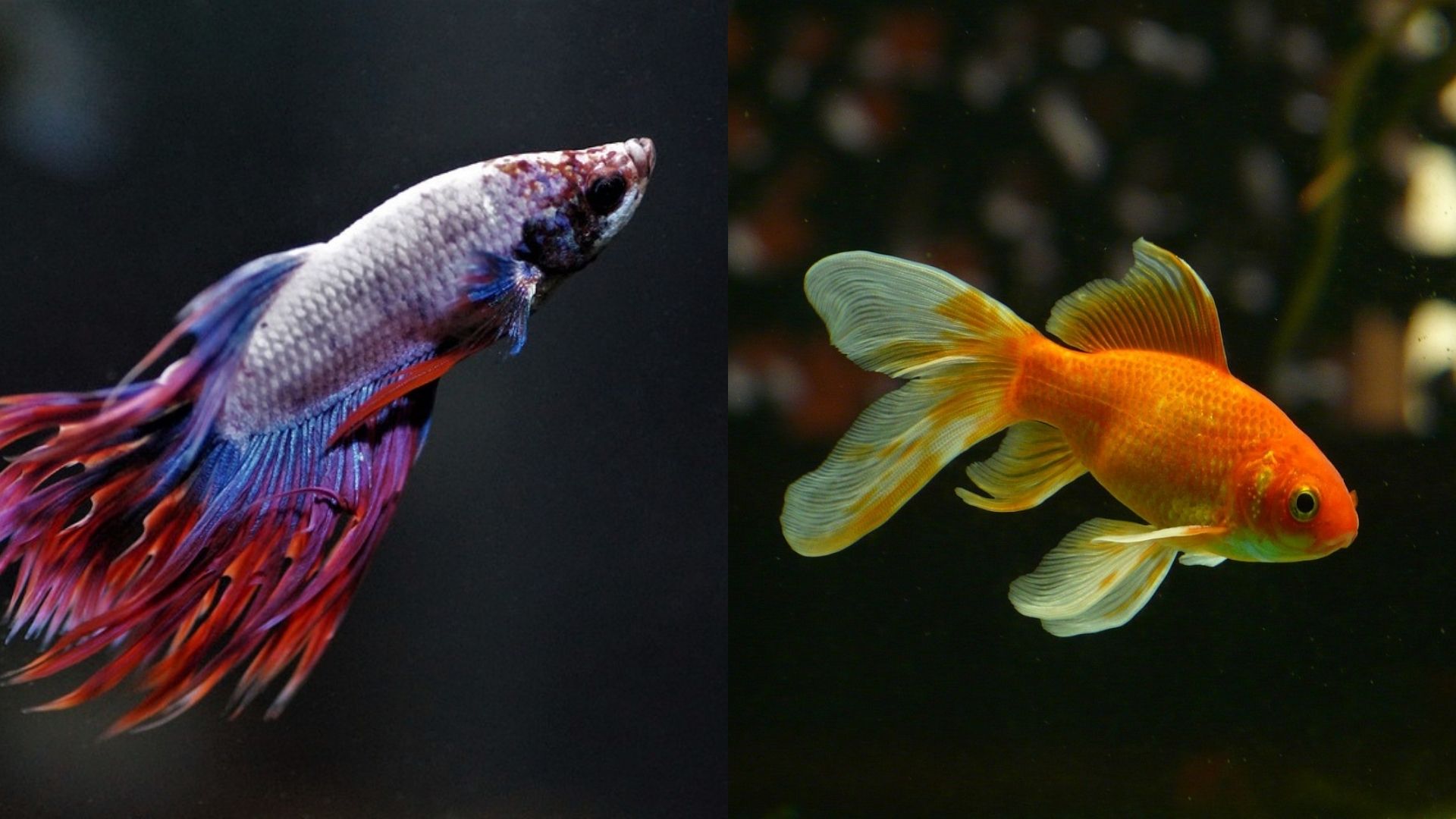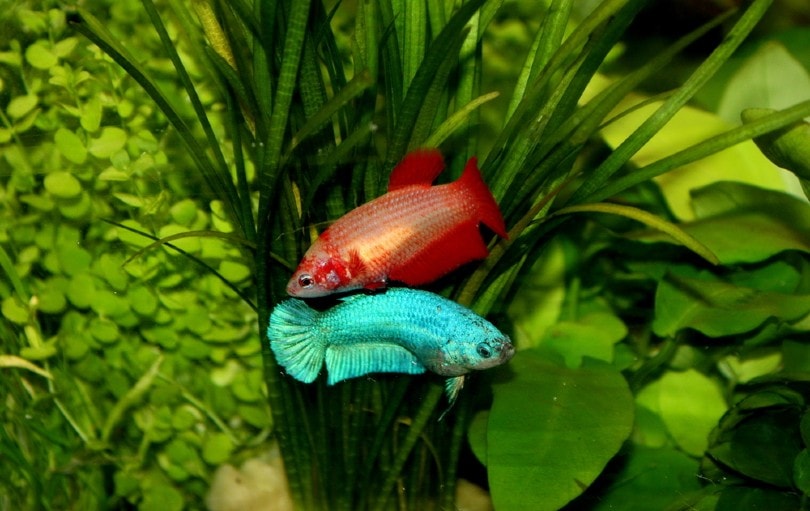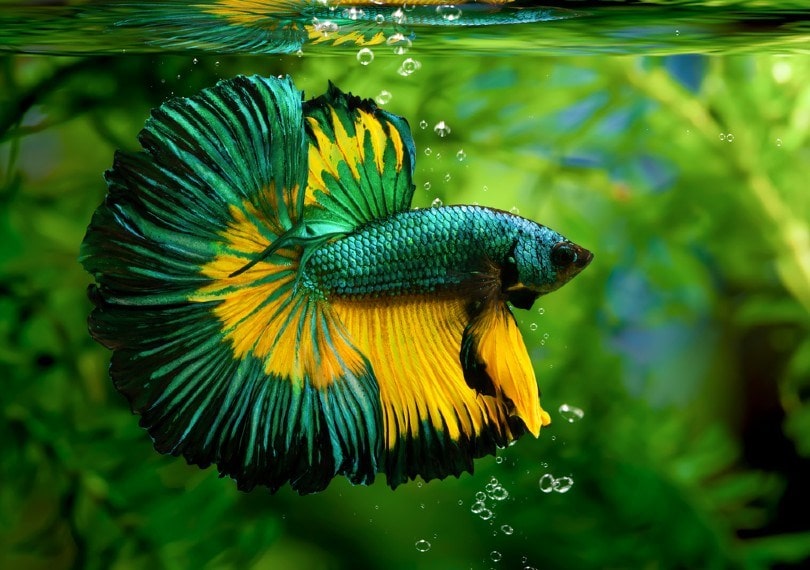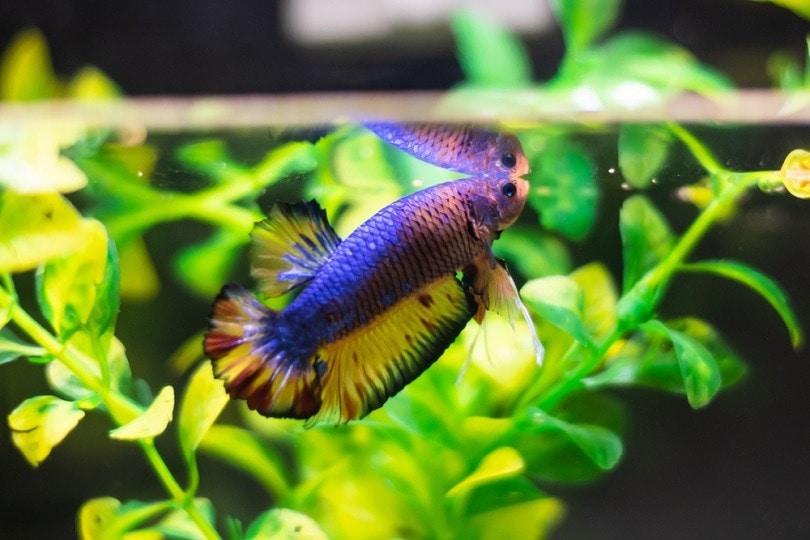
Betta fish, also commonly known as Siamese Fighting Fish due to the male’s propensity for fighting, are native to Asia, where they live in the shallow waters of ponds and slow-moving streams.1 Bettas are carnivorous fish that have a varied diet in the wild, preying on small insects and invertebrates. As pets, they are usually fed special pellets with supplemental worms and other larvae.
If you own or are planning to own a Betta fish, we’re here to help you provide the best nutrition for your pet Betta fish. Let’s dive in!
What Do Betta Fish Eat In The Wild?
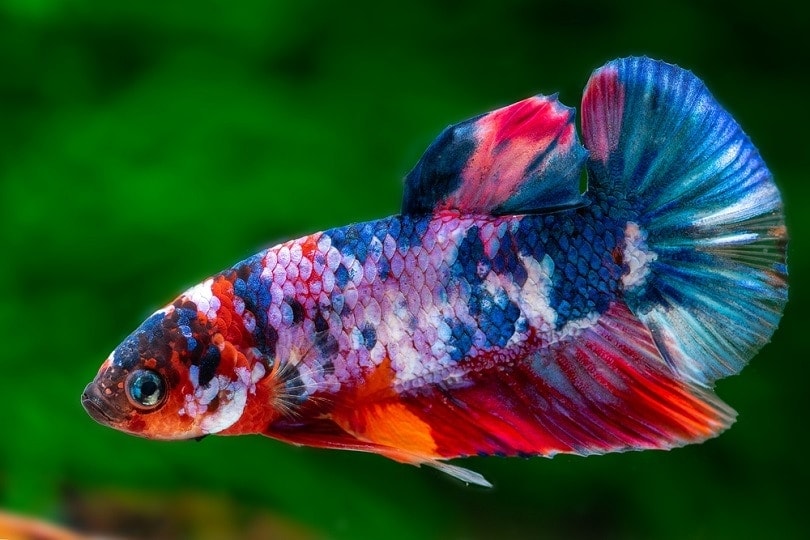
In the wild, Betta fish are carnivores or more accurately, insectivores that feed on a variety of small insects, larvae, invertebrates, and even tiny fish occasionally. These small insects would naturally be native to Asia, where Bettas originate, and extremely high in protein, an essential nutrient for wild and captive Betta fish.
Of course, in a home aquarium, your Betta will not have access to such a wide variety of foods, so it’s up to you to give them the high-protein diet that they require.
What do Betta Fish Eat As Pets?
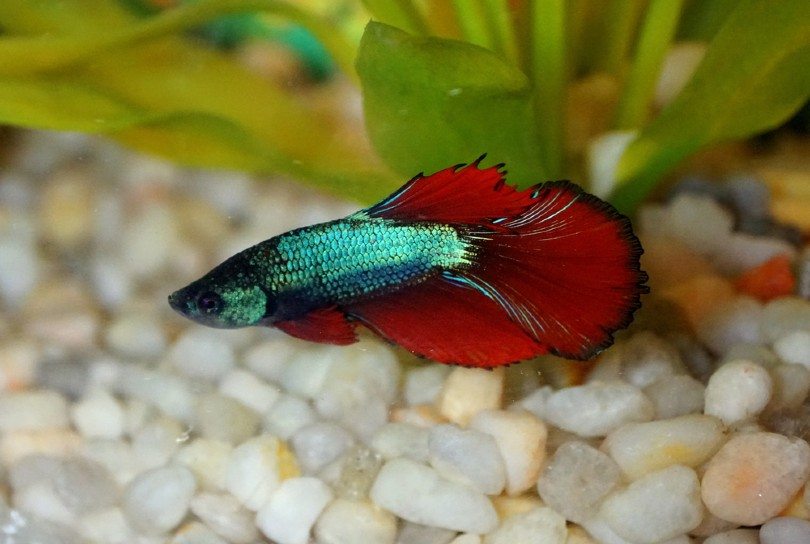
There is a common idea that Bettas can survive happily alone in a small fishbowl nibbling on the roots of plants, but this could not be further from the truth. While Bettas do occasionally eat plant matter, they are carnivores that need a diet high in animal protein. Since replicating the diet that they have in the wild is nearly impossible, specially formulated Betta pellets are ideal for ensuring that your Bettas get all the nutrients that they require. Do not give them food made for other tropical fish, as these flakes and pellets will not have the protein that your Betta needs. If you choose to give them pellets, soak them in water for 5–10 minutes before feeding them to your Betta.
Of course, Bettas will love variety in their diet too, and it’s a great idea to supplement their pellet or flake diet with occasional treats. While these may be available live, they can introduce parasites to your aquarium if they are not properly bred, so it’s best to buy them frozen.
These foods should be fed in moderation and as occasional treats only and shouldn’t make up the bulk of your Betta’s diet. Some Betta owners feed their Bettas exclusively on freeze-dried live foods, but it can be difficult to make sure they are getting all the required nutrients and can become problematic if you suddenly do not have access to these foods. The commercial foods that you choose to give your Betta should be as high quality as possible, as certain highly processed foods are packed with grains, land-based animal meats, and colorants and preservatives, which can be bad for your Betta’s health.
Lastly, stay away from human foods. Foods like breadcrumbs, fruit, and land-based meats can all cause serious health issues in Bettas, although some vegetables, such as cooked cucumbers, lettuce, and peas, can be given occasionally — if they will eat them. Remember, a healthy diet will result in your Betta having a strong immune system and help them fight off disease, giving them a better life expectancy overall.
How to Feed Betta Fish
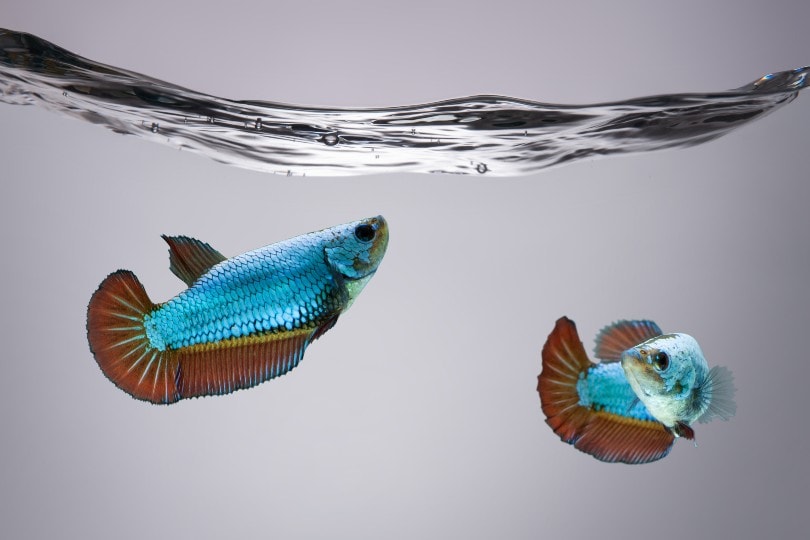
Depending on the age and size of your Betta, most experts recommend two to four Betta pellets once a day, with additional freeze-dried treats substituted for their normal food two or three times a week. This will also vary depending on the type of food that you give your Betta, so it may take trial and error to dial in the ideal amount until there is none left after feeding. Be careful not to overfeed your Betta, as this can cause bloat, a potentially fatal condition. It’s also good practice to remove any leftover food from their tank after feeding. As a general rule, only offer as much as they can eat in 2–3 minutes.
Interestingly, Bettas are accustomed to intermittent fasting in the wild and can survive for up to 2 weeks without eating. In fact, it’s recommended by Betta experts to give your Betta a day of fasting once or twice a month, although never more than that — certainly not 2 weeks!
See Also:
- How to Take Care of a Betta Fish (Care Sheet & Guide)
- 32 Types of Betta Fish Patterns, Colors, & Tails (With Pictures)
Final Thoughts
Betta fish are gorgeous animals with different morphs and fin variations available in the pet industry — more than 73 separate morphs have been recognized, with that number continuously growing. But this wasn’t always the case, and Bettas in the wild are far less colorful than their vibrant captive cousins. Apart from color, wild and captive Bettas are much the same, though, including their diet.
In the wild, Betta fish are largely opportunistic eaters, feeding on whatever small insects and larvae that they find on the surface of the water. This is difficult to replicate in captivity, and the best food for Bettas in an aquarium are specially formulated pellets or flakes, as these will give your Betta all the nutrition and protein that they require. Of course, Bettas love variety too, and they’ll appreciate freeze-dried bloodworms or brine shrimp occasionally.
Featured Image Credit: at.rma, Shutterstock




